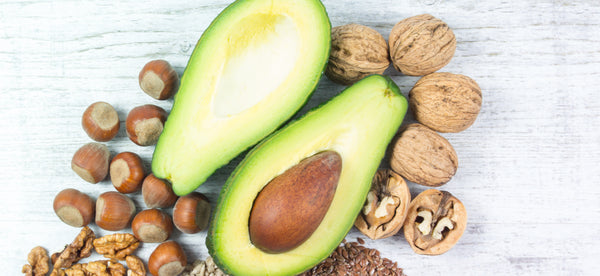


Age isn’t just a number. Many factors can speed up or slow down the signs of skin aging—and these go beyond the number of candles on your birthday cake. Extrinsic (external) factors, including pollution, pesticides, sugar, and stress, all contribute to sun spots, wrinkles, fine lines, and sagging. They also damage dermal collagen, a protein that keeps skin smooth and supple. When collagen breaks down, nutrients and oxygen can’t repair the skin or eliminate toxins.
You might be surprised to hear that this is actually goodnews. It means that skin aging, to some degree, is well within your control. If you can identify the causes of skin aging, you can take steps to address each one and slow the progression.
Reactive molecules known as “free radicals” harm healthy cells, and have been associated with heart disease, memory loss, and premature aging. Free radicals are derived from pollution, pesticides, cigarette smoke, alcohol, prolonged sun exposure, and chronic stress, to name a few. These toxins break down collagen, resulting in wrinkles and sagging. They also cause skin discoloration and dullness.
Inflammation is your body’s way of defending itself. When you eat something you’re allergic to or stub your toe, your body sends white blood cells to heal the affected area. When the threat is gone, the inflammation dissipates. However, unhealthy foods and ongoing stress, among other factors, can make your body think it’s under constant attack, causing chronic and widespread inflammation. Inflammation on the inside appears on the skin in the form of hives, rashes, blotches, and breakouts. It can also cause collagen damage.
Does your diet contain refined carbohydrates and sugars like white bread, candy, and soda? These types of foods can react with proteins and sugars to form dangerous molecules called advanced glycation end products (AGEs). AGEs are another cause of skin aging, as they bind to the skin’s connective tissue and alter its natural structure. Glycation can also lead to inflammation and oxidative stress, which break down collagen.
Stress signals your glands to produce hormones like cortisol and adrenaline. While this process is important for survival, prolonged secretion of stress hormones can wreak havoc on your health. Common side effects include anxiety, memory loss, inflammation, immunosuppression, leaky gut, and insulin resistance. Like inflammation, the culmination of long-term stress shows on your skin in the form of rashes, breakouts, and fine lines. But stress doesn’t just impact your skin; it’s also correlated with a litany of diseases and health conditions.
Ready for the silver lining? Simple shifts in diet and lifestyle can transform the way you look and feel. Fighting inflammation, limiting toxic exposure, eating nutrient-dense foods, and engaging in deep breathing can do wonders for your skin and your health. Adopt Well Within Beauty’s 6 nourishing tips to slow the signs of aging skin.
 NUTRITION
NUTRITION
 RECIPES: VEGAN OTHERS
RECIPES: VEGAN OTHERS
 NUTRITION
NUTRITION
Sign up today to receive weekly Beauty, Nutrition and Lifestyle tips, exclusive offers, and 10% off your first purchase.
Our beauty and wellness brand offers support, services and products to help you become WELL WITHIN your skin, mind and body.
Sign up today and receive your special Friends and Family 20% off your first purchase, valid until May 31, 2017.
Stay Ever Well,
Lynne + Renee
Co-founders
Thank you for signing up today to receive weekly Beauty, Nutrition and Lifestyle tips, exclusive offers and your special Friends and Family 20% off your first purchase, valid until May 31, 2017.
Stay Ever Well,
Lynne + Renee
Sign up today to receive weekly Beauty, Nutrition and Lifestyle tips, exclusive offers, and 10% off your first purchase.
Leave a comment
Comments will be reviewed prior to posting.